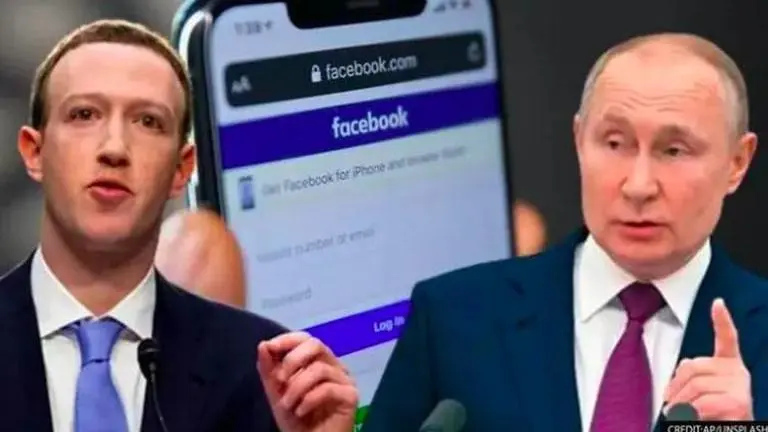Updated 6 August 2022 at 14:12 IST
Meta deletes 1,000 fake Russian accounts, troll group for supporting Ukraine war
Meta banned a pro-Russian group Cyber Front Z that purported to mobilise the supporters of Vladimir Putin's war in Ukraine through the Telegram channel.
- World News
- 2 min read

In an attempt to stifle voices supporting the ongoing Russian atrocities in Ukraine, Meta took a drastic measure and removed nearly 1,000 "fake Russian accounts" across its platforms. In a statement, cited by The Kyiv Independent, Meta has disabled up to 45 Facebook and 1,037 Instagram accounts which were operated by Russian trolls that were found targeting public figures that support Ukraine's sovereignty.
Meta also banned a pro-Russian group Cyber Front Z that purported to mobilise the supporters of Vladimir Putin's war in Ukraine through the Telegram channel. According to Meta's statement, Cyber Front Z hadn't "succeeded in rallying substantial authentic support online as part of this operation."
"Several hundred people were reportedly employed and compensated in rubles to leave pro-Russian comments in order to fabricate the illusion of widespread support for Russia’s war," the paper said in a tweet.
Several hundred people were reportedly employed and compensated in rubles to leave pro-Russian comments in order to fabricate the illusion of widespread support for Russia’s war.
— The Kyiv Independent (@KyivIndependent) August 6, 2022
Moscow levelled 'extremism charges' on Meta for anti-Russia content
After Russia launched an all invasion of Ukraine, a court ordered an immediate ban on the social networking sites Instagram and Facebook, snubbing the American corporation Meta's attempts of dismissing the "extremism charges" against it levelled by Moscow. In a ruling, the Tverskoy Court of Moscow questioned the activities of the American social media platforms owned by Mark Zuckerberg's Meta as unregulated content that Moscow linked with “extremism” flooded, calling for violence against Russian soldiers as the war in Ukraine ensued.
Judge Olga Solopova stated that the decision to ban Meta’s platforms will take effect immediately and asked Meta to shut down its offices. Such an appeal to ban Meta's platforms was brought to the court by the Federal Security Service of the Russian Federation [FSB] the main successor agency to the Soviet Union's KGB of which Russian president Vladimir Putin was a member. The ruling, although, did not apply to WhatsApp messenger, also owned by Meta.
Advertisement
After the social media clampdown, as directed by the court, the Russians were found to be resorting to Virtual private networks, or VPNs, to access blocked sites such as Meta's Facebook and Instagram. Russian citizens have been evading the location-based restrictions by accessing the banned sites on VPN that allows more private browsing by encrypting internet traffic. The VPNs demand in Moscow surged by 1,092%, Top10VPN.com said citing the data to back the figures.
Published By : Zaini Majeed
Published On: 6 August 2022 at 14:12 IST
